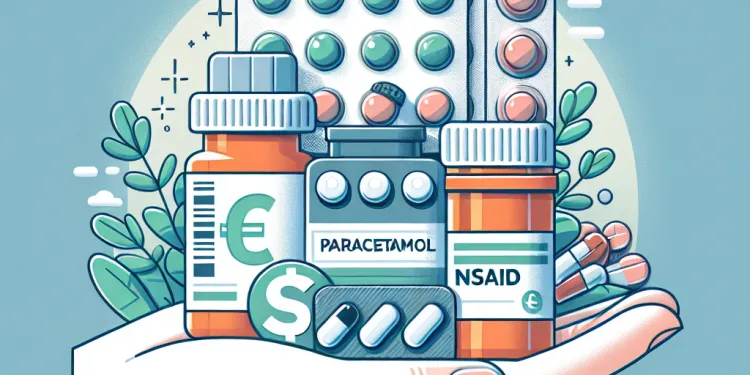
Find Help
More Items From Ergsy search
-
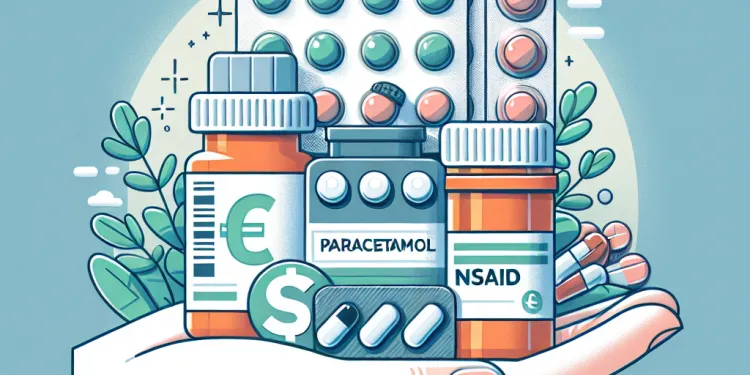
Why might someone choose Paracetamol over NSAIDs?
Relevance: 100%
-

What is the difference between Aspirin, Paracetamol, and Ibuprofen?
Relevance: 69%
-

Does Paracetamol reduce inflammation?
Relevance: 66%
-

What is Paracetamol?
Relevance: 64%
-

What is Paracetamol?
Relevance: 63%
-

How do NSAIDs work to reduce pain?
Relevance: 60%
-

Is Paracetamol the same as Aspirin?
Relevance: 59%
-

What is the difference between aspirin, paracetamol, and ibuprofen?
Relevance: 59%
-

Which one is better for toothache: Ibuprofen or Paracetamol?
Relevance: 59%
-

Which one is better for headaches: Aspirin or Paracetamol?
Relevance: 56%
-

What is a common use of paracetamol?
Relevance: 55%
-

Is it safe to take Paracetamol with Ibuprofen?
Relevance: 54%
-

Can Paracetamol be used in pregnant women?
Relevance: 50%
-

Is paracetamol linked to autism?
Relevance: 50%
-
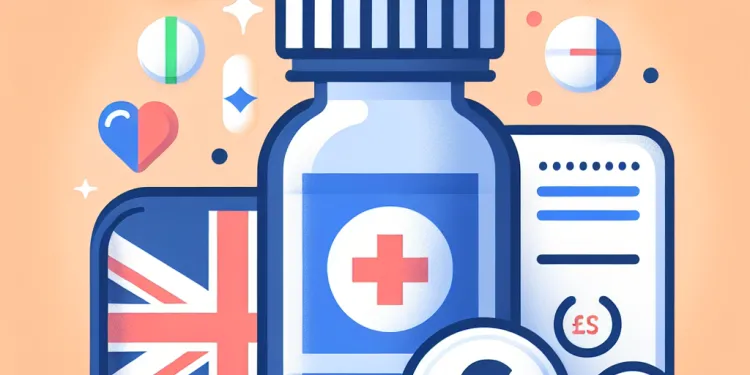
What are the side effects of Paracetamol?
Relevance: 48%
-

Can I take ibuprofen and paracetamol together? - Common Health Questions | NHS
Relevance: 48%
-

Is there any risk of using paracetamol outside of pregnancy with regard to autism?
Relevance: 46%
-
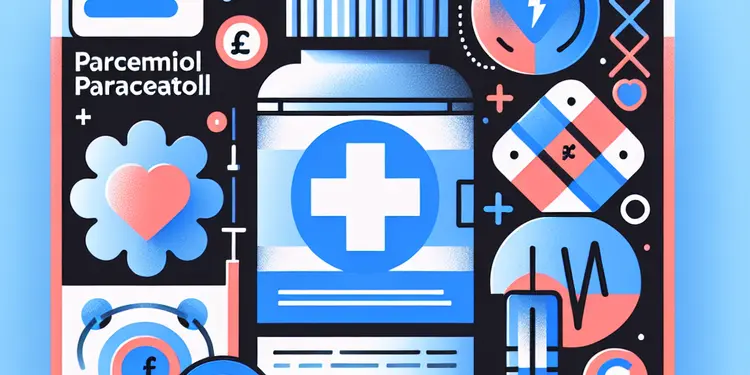
Why is there concern about paracetamol and autism?
Relevance: 46%
-
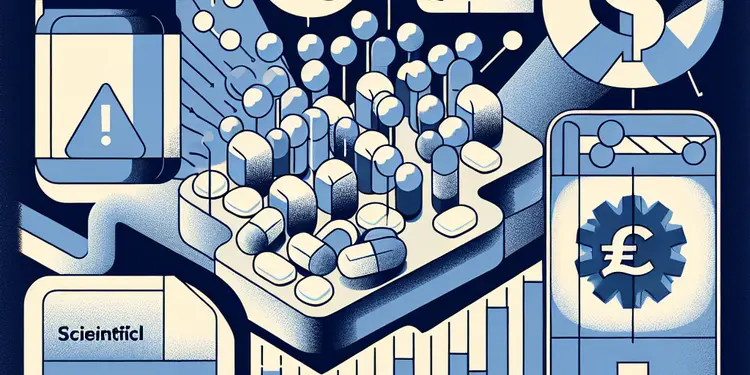
Is there any scientific evidence that links paracetamol use to autism?
Relevance: 43%
-

What should pregnant individuals consider when taking paracetamol?
Relevance: 43%
-
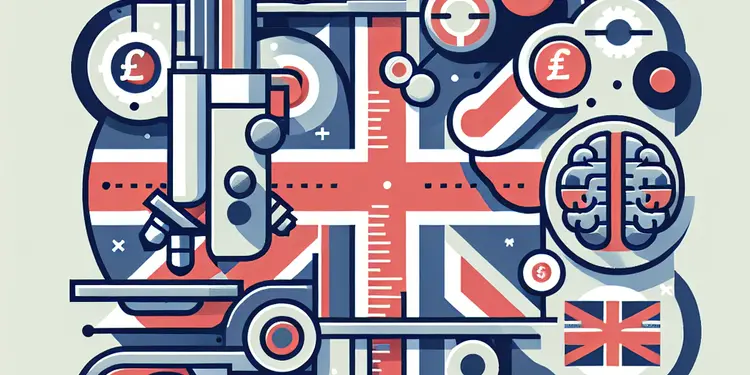
What can cause autism, if not paracetamol?
Relevance: 31%
-

How prevalent is the use of paracetamol during pregnancy?
Relevance: 31%
-

What are the limitations of studies examining paracetamol use and autism?
Relevance: 29%
-

Has paracetamol been linked to other developmental issues besides autism?
Relevance: 27%
-

Have there been any recent changes in guidelines regarding paracetamol use and pregnancy?
Relevance: 26%
-

Are Tylenol and Paracetamol the same?
Relevance: 25%
-

Have any major health organizations advised against using paracetamol during pregnancy due to autism concerns?
Relevance: 24%
-

How to deal with period pain | NHS
Relevance: 23%
-

GP Nursing Most Common Medications UK.
Relevance: 21%
-

What should someone from the UK do if they think they have Zika virus after traveling?
Relevance: 20%
-
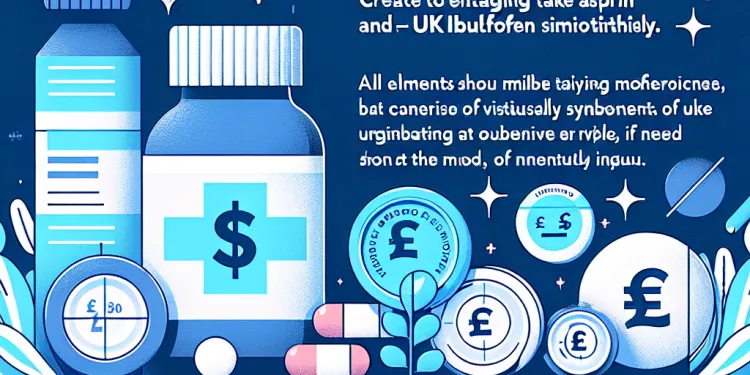
Can I take Aspirin and Ibuprofen together?
Relevance: 19%
-

Osteoarthritis of the Hip
Relevance: 19%
-

How to deal with period pain | NHS
Relevance: 18%
-

What do researchers say about the link between paracetamol and autism?
Relevance: 17%
-

Are there safer alternatives to paracetamol for pregnant individuals experiencing pain or fever?
Relevance: 17%
-

Are there specific medications that can cause tinnitus?
Relevance: 17%
-

Advice if your child has... A High temperature
Relevance: 15%
-
Should individuals with certain medical conditions avoid aspirin?
Relevance: 15%
-

What is Aspirin?
Relevance: 15%
-

Shoulder pain | NHS
Relevance: 15%
Introduction to Paracetamol and NSAIDs
Paracetamol and non-steroidal anti-inflammatory drugs (NSAIDs) are among the most commonly used medications for pain relief and the reduction of fever. While both are effective, they work differently and have unique profiles that may make one more suitable than the other in certain circumstances.
Mechanism of Action
Paracetamol, also known as acetaminophen, works primarily in the central nervous system. It is thought to inhibit the production of prostaglandins in the brain, which helps reduce pain and fever. Unlike NSAIDs, paracetamol does not have significant anti-inflammatory properties. NSAIDs, such as ibuprofen and aspirin, work by blocking the enzyme cyclooxygenase (COX), which in turn reduces the production of prostaglandins throughout the body. This provides not only pain relief but also reduces inflammation and fever.
Considerations for Choosing Paracetamol
One of the key reasons someone might choose paracetamol over NSAIDs is due to its safety profile, especially concerning gastrointestinal complications. NSAIDs can cause gastrointestinal irritation, ulcers, and bleeding because they inhibit COX-1, an enzyme that protects the stomach lining. Paracetamol, on the other hand, does not affect COX-1 and is thus gentler on the stomach.
Paracetamol is usually preferred for individuals with conditions where NSAIDs might exacerbate symptoms, such as those with a history of gastric ulcers, digestive disorders, or acid reflux. Additionally, people who are taking anticoagulant medications might opt for paracetamol, as NSAIDs can increase bleeding risks.
Suitability for Various Populations
Paracetamol is often the pain relief drug of choice for certain populations, including pregnant women, the elderly, and those with renal issues. NSAIDs can adversely affect kidney function, particularly in older adults and those with preexisting renal conditions. Pregnant women are generally advised to avoid NSAIDs during pregnancy, especially in the third trimester, due to potential risks to the fetus. Paracetamol is typically considered safer when taken in recommended doses.
Potential Risks and Cautions
While paracetamol is considered safe at recommended doses, it is crucial to adhere to dosing guidelines to avoid liver damage. Paracetamol overdose is a leading cause of acute liver failure. Conversely, NSAIDs can lead to cardiovascular problems, especially in long-term use or high doses, making paracetamol a preferable choice for those with cardiovascular concerns.
Conclusion
Choosing between paracetamol and NSAIDs depends on various factors, including the individual's medical history, current health conditions, and specific pain management needs. While NSAIDs offer the dual benefit of pain relief and inflammation reduction, paracetamol provides effective pain and fever relief with a lower risk of gastrointestinal issues, making it a valuable option for many individuals.
Introduction to Paracetamol and NSAIDs
Paracetamol and NSAIDs (non-steroidal anti-inflammatory drugs) are medicines people use to feel better when they have pain or fever. They both help, but they work in different ways. This means sometimes one might be a better choice than the other.
How They Work
Paracetamol, also called acetaminophen, works mostly in the brain. It helps stop the body from making something called prostaglandins, which can cause pain and fever. Paracetamol does not help with swelling. NSAIDs like ibuprofen and aspirin stop an enzyme called COX, which helps make prostaglandins all over the body. This helps with pain, swelling, and fever.
Why Choose Paracetamol
People might pick paracetamol because it is gentler on the tummy. NSAIDs can make your stomach sore and cause bleeding because they stop COX-1, which protects the stomach. Paracetamol does not stop COX-1, so it is easier on the stomach.
Paracetamol is good for people with tummy troubles like ulcers or heartburn. It is also safer for people who take blood thinners because NSAIDs can make bleeding worse.
Who Can Use Paracetamol
Paracetamol is often used by pregnant women, older people, and those with kidney problems. NSAIDs can harm the kidneys, especially for older people or those with kidney issues. Pregnant women should avoid NSAIDs, especially late in pregnancy, because they can harm the baby. Paracetamol is safer if taken as directed.
Be Careful
Always take the right amount of paracetamol, because too much can hurt your liver. Taking too much paracetamol is a common reason for liver damage. NSAIDs can cause heart problems, especially if taken for a long time or in high doses. So, paracetamol is safer if you have heart concerns.
Conclusion
Deciding between paracetamol and NSAIDs depends on your health needs and history. NSAIDs help with pain and swelling, but paracetamol is better for avoiding tummy troubles. It is a good choice for many people needing pain or fever relief.
Frequently Asked Questions
What is the main reason someone might choose paracetamol over NSAIDs?
Paracetamol is often chosen for its effectiveness in relieving pain and reducing fever without causing stomach irritation.
Are there any gastrointestinal benefits of paracetamol over NSAIDs?
Yes, paracetamol does not typically cause stomach irritation or ulcers like NSAIDs can.
Is paracetamol safer for individuals with cardiovascular concerns?
Paracetamol is generally considered safer than NSAIDs for individuals with cardiovascular issues, as NSAIDs can increase the risk of heart attack and stroke.
Can paracetamol be taken with anticoagulant medications?
Paracetamol is usually safer for individuals on anticoagulants compared to NSAIDs, which can interact and increase bleeding risk.
Why might someone with kidney issues prefer paracetamol over NSAIDs?
Paracetamol is less likely to affect kidney function compared to NSAIDs, which can reduce kidney blood flow.
Are there any liver considerations when taking paracetamol?
Yes, while paracetamol is safer for the stomach and heart, it can cause liver damage if taken in excessive doses.
Do NSAIDs have anti-inflammatory properties that paracetamol lacks?
Yes, NSAIDs have anti-inflammatory properties, whereas paracetamol does not; it's primarily a pain reliever and fever reducer.
Is paracetamol preferable for children over NSAIDs?
Paracetamol is often recommended for children due to its lower risk of causing Reye’s syndrome, unlike aspirin (an NSAID).
How does paracetamol compare to NSAIDs in terms of side effects?
Paracetamol generally has fewer side effects, especially in terms of gastrointestinal, cardiovascular, and renal issues.
What should pregnant women consider when choosing between paracetamol and NSAIDs?
Paracetamol is often recommended during pregnancy over NSAIDs, which can cause complications, especially in the third trimester.
In which scenarios might NSAIDs be more appropriate than paracetamol?
NSAIDs may be more appropriate for conditions where inflammation is a primary concern, such as arthritis.
Is paracetamol a suitable option for long-term pain management?
Paracetamol can be used for long-term pain management if monitored properly, but one should be cautious of liver damage risks.
Can paracetamol be safely combined with NSAIDs?
Yes, paracetamol and NSAIDs can often be used together to manage pain more effectively by utilizing different mechanisms of action.
How does the efficacy of paracetamol compare with that of NSAIDs?
Paracetamol is equally effective for pain relief and fever reduction, but less effective for inflammation compared to NSAIDs.
Is it true that NSAIDs can affect asthma conditions?
Yes, NSAIDs can exacerbate asthma in some individuals, making paracetamol a safer choice for those affected.
What role does patient allergy play in choosing between paracetamol and NSAIDs?
Patients with allergies to NSAIDs or aspirin will often tolerate paracetamol without an allergic reaction.
Is paracetamol less of a concern for drug interactions compared to NSAIDs?
Paracetamol generally has fewer drug interactions compared to NSAIDs, which can affect various medications like antihypertensives.
Why might older adults prefer paracetamol over NSAIDs?
Older adults often prefer paracetamol due to NSAIDs’ heightened risk of cardiovascular, gastrointestinal, and renal adverse effects in this population.
Is paracetamol recommended in scenarios where low-dose aspirin is taken for heart conditions?
Yes, paracetamol is often preferred for pain relief in patients taking low-dose aspirin, as it doesn't have the same blood-thinning effect NSAIDs could counteract.
Can paracetamol be used for headaches effectively compared to NSAIDs?
Paracetamol is effective for treating headaches and is often preferred for its lower side effect profile compared to NSAIDs.
Why might someone pick paracetamol instead of other pain pills?
Paracetamol is a medicine that helps to stop pain and bring down a fever. It is gentle on your stomach and does not hurt it.
Is paracetamol better for the stomach than NSAIDs?
Paracetamol is gentle on the stomach. It is less likely to cause tummy problems.
NSAIDs, like ibuprofen, can upset the stomach. They might cause tummy pain or bleeding.
If you have a sore tummy, paracetamol can be a better choice. Ask a doctor what is best for you.
Use tools like large print or audio readers to help understand better.
Yes, paracetamol is gentle on the stomach and does not usually cause irritation or sores like some other pain medicines can.
Is taking paracetamol safe for people with heart problems?
Paracetamol is a medicine for pain and fever.
People with heart problems should be careful with medicines.
If you have heart problems, ask a doctor if paracetamol is safe for you.
Tools that can help:
- Bring a friend or family member to help ask the doctor questions.
- Use a notebook to write down what the doctor says.
- Ask the doctor to explain things if you do not understand.
Paracetamol is usually safer for your heart than some other pain medicines called NSAIDs. NSAIDs can make it more likely to have a heart attack or a stroke.
Can you take paracetamol with blood-thinning medicines?
Paracetamol is a medicine for pain and fever. Blood-thinning medicines help stop blood clots. If you take these, ask a doctor or nurse if you can also take paracetamol. They will help you stay safe.
Tools like picture charts can help you understand better. Also, ask someone to read with you.
Paracetamol is a medicine that is usually safer for people who take blood-thinning medicines. It is better than some other pain medicines, like NSAIDs, because those can make bleeding more likely.
Why might someone with kidney problems choose paracetamol instead of NSAIDs?
People with kidney problems may choose paracetamol because it is safer for their kidneys. NSAIDs, like ibuprofen, can be hard on the kidneys and might cause more damage. Paracetamol does not hurt the kidneys as much.
Helpful Tip: Ask a doctor or nurse for advice on the best medicine. They can help you choose what is safe for you.
When you take paracetamol, it is not as hard on your kidneys as some other medicines. These other medicines can make it tougher for blood to move through your kidneys.
Is it safe for your liver to take paracetamol?
Yes, paracetamol is gentle on the stomach and heart. But be careful! Taking too much can hurt your liver.
Do NSAIDs reduce swelling in ways that paracetamol does not?
Yes, NSAIDs help with swelling and inflammation. Paracetamol does not. It helps with pain and can lower fever.
Is it better for children to take paracetamol or NSAIDs?
Some children take medicine when they feel sick or are in pain. Two common types of medicine are paracetamol and NSAIDs.
Paracetamol is a medicine that can help reduce pain and fever. It is often used when children have a headache or the flu.
NSAIDs are another type of medicine. They can also help with pain, fever, and swelling. Some examples of NSAIDs are ibuprofen and aspirin.
If you need to give medicine to a child, it is important to talk to a doctor or pharmacist. They can help you decide which medicine is best for your child.
Here are some tips to help children with medicine:
- Read the label carefully.
- Use the right amount as directed by the doctor.
- Keep track of when the medicine is given.
Remember, always ask an adult you trust if you are unsure about any medicine.
Paracetamol is a type of medicine that is safe for children. It is a better choice than aspirin because it does not cause a problem called Reye’s syndrome.
What are the side effects of paracetamol and NSAIDs?
Paracetamol and NSAIDs are types of medicine.
Paracetamol is often used for pain and fever. It is gentle on your tummy.
NSAIDs, like ibuprofen, help with pain and swelling. But they can sometimes upset your tummy.
If you are not sure which is better for you, ask a doctor or nurse. They can help you choose the right medicine.
Sometimes, using an app or website with pictures or videos can be helpful.
Paracetamol is a medicine. It usually has fewer problems for your stomach, heart, and kidneys.
What should pregnant women think about when picking paracetamol or NSAIDs?
When a woman is going to have a baby, it is important to be careful about medicine. Here are some things to remember:
- Paracetamol: It's usually safe to take for pain or fever. But, always ask a doctor first.
- NSAIDs (like ibuprofen): It's better to avoid these, especially in the later months of pregnancy. Talk to your doctor before using them.
If you find it hard to decide, ask a doctor or a pharmacist. They can help you choose what is safe for you and your baby.
Paracetamol is a kind of medicine that is safer to take when you are pregnant. You should use paracetamol instead of medicines called NSAIDs. NSAIDs can cause problems for you and the baby, especially in the last part of pregnancy.
When is it better to use NSAIDs instead of paracetamol?
Sometimes, NSAIDs (like ibuprofen) work better than paracetamol (also called acetaminophen) for certain problems.
- Pain from Inflammation: If you have swelling or inflammation, like from an injury, NSAIDs can help reduce it.
- Joint Pain: For problems like arthritis, where joints are sore and swollen, NSAIDs might help more.
- Menstrual Cramps: NSAIDs can be good at easing the pain from period cramps.
Paracetamol is still good for headaches and fever. But, talk to a doctor if you are unsure which is best for you.
You can also use pictures and apps on your phone to help understand better which medicine to choose.
NSAIDs are a type of medicine. They help when you have swelling and pain. They work well for things like arthritis, where there is a lot of swelling.
Can I use paracetamol for pain for a long time?
Paracetamol can help when you have pain. You can use it sometimes to make the pain go away.
If your pain stays for a long time, talk to a doctor. They will tell you the best way to help with the pain.
Keep track of how much paracetamol you take. You can use a notebook or ask someone to help you remember.
Paracetamol can help with pain for a long time, but it’s important to be careful because it can hurt your liver.
Is it safe to take paracetamol with NSAIDs?
Paracetamol is a medicine that can help with pain and fever.
NSAIDs are medicines that also help with pain and swelling. One example of an NSAID is ibuprofen.
Some people want to know if they can take paracetamol and an NSAID like ibuprofen together.
It is important to talk to a doctor or a pharmacist before taking them together. They will say if it is safe for you.
Here are some tips if you find reading hard:
- Read slowly and take your time.
- Ask someone to read with you.
- Use tools to help read out loud.
Yes, you can take paracetamol and NSAIDs together to help with pain. They work in different ways to make you feel better.
Which works better: paracetamol or NSAIDs?
Paracetamol and NSAIDs are medicines that help with pain and fever.
Paracetamol is good for headaches and colds.
NSAIDs, like ibuprofen, also help with pain and can reduce swelling.
If you're choosing between them, you might want to talk to someone like a doctor.
You can use tools like pictures or ask someone to explain if you're not sure.
Paracetamol helps with pain and fever. It does not help as much with swelling. NSAIDs are better for swelling.
Can pain medicine make asthma worse?
Yes, some people with asthma can feel worse if they take NSAIDs. In that case, paracetamol is a safer medicine for them.
How does being allergic to something help you choose between paracetamol and NSAIDs?
If you are allergic to a medicine, it can make you sick.
It's important to know if you are allergic to paracetamol or NSAIDs.
If you think you might be allergic, talk to a doctor or nurse.
They can help you choose the right medicine so you stay safe.
You can also ask someone to help you read the information about medicines.
If you have allergies to NSAIDs or aspirin, you might be able to take paracetamol without having an allergy.
Is paracetamol safer with other medicines than NSAIDs?
When taking medicine, it's important to know if it is safe with other medicines. Paracetamol is a type of medicine that helps with pain and fever. NSAIDs are another kind of medicine that also helps with pain and swelling.
Paracetamol is usually safer to take with other medicines than NSAIDs. This means it is less likely to cause problems if you are taking different medicines at the same time. But it's always a good idea to ask a doctor or pharmacist if you're not sure.
Here are some helpful tips:
- Always read the instructions on the medicine bottle.
- Ask a doctor or pharmacist if the medicine is safe for you.
- Tell them about all the medicines you are taking.
- Write a list of your medicines. Keep it with you.
Paracetamol is a type of medicine. It usually doesn’t mix badly with other medicines.
Other medicines like NSAIDs can mix badly with some medicines. This includes medicines that help control high blood pressure.
Why do older people like paracetamol more than some other pain pills?
Older people might pick paracetamol because it is gentle on the stomach.
Other pain pills, like NSAIDs (non-steroidal anti-inflammatory drugs), can upset the stomach.
NSAIDs might also cause bleeding or hurt the kidneys if used for a long time.
These are some reasons why older people might choose paracetamol instead.
If you need help reading, you can try using a ruler to guide your eyes along the lines. You can also read out loud or ask someone else to read with you.
Older people usually like to use paracetamol. This is because other pain medicines called NSAIDs can cause more problems for their heart, stomach, and kidneys.
Can you take paracetamol if you are already taking low-dose aspirin for your heart?
Yes, many people use paracetamol to help with pain when they are also taking low-dose aspirin. This is because paracetamol does not make your blood thinner like some other pain medicines do.
Is paracetamol good for headaches like NSAIDs?
Here is some help to read this:
- Paracetamol: A medicine that helps with pain and fever.
- Headache: When your head hurts.
- NSAIDs: Another type of medicine that helps with pain and swelling. Some examples are ibuprofen and aspirin.
Extra tips:
- Ask someone to read with you.
- Use a dictionary to understand big words.
- Look up pictures or videos about paracetamol and NSAIDs to understand better.
Paracetamol is a good medicine for headaches. It is often chosen because it has fewer side effects than other medicines like NSAIDs.
Useful Links
This website offers general information and is not a substitute for professional advice.
Always seek guidance from qualified professionals.
If you have any medical concerns or need urgent help, contact a healthcare professional or emergency services immediately.
Some of this content was generated with AI assistance. We’ve done our best to keep it accurate, helpful, and human-friendly.
- Ergsy carfully checks the information in the videos we provide here.
- Videos shown by Youtube after a video has completed, have NOT been reviewed by ERGSY.
- To view, click the arrow in centre of video.
- Most of the videos you find here will have subtitles and/or closed captions available.
- You may need to turn these on, and choose your preferred language.
- Go to the video you'd like to watch.
- If closed captions (CC) are available, settings will be visible on the bottom right of the video player.
- To turn on Captions, click settings .
- To turn off Captions, click settings again.
More Items From Ergsy search
-

Why might someone choose Paracetamol over NSAIDs?
Relevance: 100%
-

What is the difference between Aspirin, Paracetamol, and Ibuprofen?
Relevance: 69%
-

Does Paracetamol reduce inflammation?
Relevance: 66%
-

What is Paracetamol?
Relevance: 64%
-

What is Paracetamol?
Relevance: 63%
-

How do NSAIDs work to reduce pain?
Relevance: 60%
-

Is Paracetamol the same as Aspirin?
Relevance: 59%
-

What is the difference between aspirin, paracetamol, and ibuprofen?
Relevance: 59%
-

Which one is better for toothache: Ibuprofen or Paracetamol?
Relevance: 59%
-

Which one is better for headaches: Aspirin or Paracetamol?
Relevance: 56%
-

What is a common use of paracetamol?
Relevance: 55%
-

Is it safe to take Paracetamol with Ibuprofen?
Relevance: 54%
-

Can Paracetamol be used in pregnant women?
Relevance: 50%
-

Is paracetamol linked to autism?
Relevance: 50%
-

What are the side effects of Paracetamol?
Relevance: 48%
-

Can I take ibuprofen and paracetamol together? - Common Health Questions | NHS
Relevance: 48%
-

Is there any risk of using paracetamol outside of pregnancy with regard to autism?
Relevance: 46%
-

Why is there concern about paracetamol and autism?
Relevance: 46%
-

Is there any scientific evidence that links paracetamol use to autism?
Relevance: 43%
-

What should pregnant individuals consider when taking paracetamol?
Relevance: 43%
-

What can cause autism, if not paracetamol?
Relevance: 31%
-

How prevalent is the use of paracetamol during pregnancy?
Relevance: 31%
-

What are the limitations of studies examining paracetamol use and autism?
Relevance: 29%
-

Has paracetamol been linked to other developmental issues besides autism?
Relevance: 27%
-

Have there been any recent changes in guidelines regarding paracetamol use and pregnancy?
Relevance: 26%
-

Are Tylenol and Paracetamol the same?
Relevance: 25%
-

Have any major health organizations advised against using paracetamol during pregnancy due to autism concerns?
Relevance: 24%
-

How to deal with period pain | NHS
Relevance: 23%
-

GP Nursing Most Common Medications UK.
Relevance: 21%
-

What should someone from the UK do if they think they have Zika virus after traveling?
Relevance: 20%
-

Can I take Aspirin and Ibuprofen together?
Relevance: 19%
-

Osteoarthritis of the Hip
Relevance: 19%
-

How to deal with period pain | NHS
Relevance: 18%
-

What do researchers say about the link between paracetamol and autism?
Relevance: 17%
-

Are there safer alternatives to paracetamol for pregnant individuals experiencing pain or fever?
Relevance: 17%
-

Are there specific medications that can cause tinnitus?
Relevance: 17%
-

Advice if your child has... A High temperature
Relevance: 15%
-
Should individuals with certain medical conditions avoid aspirin?
Relevance: 15%
-

What is Aspirin?
Relevance: 15%
-

Shoulder pain | NHS
Relevance: 15%


